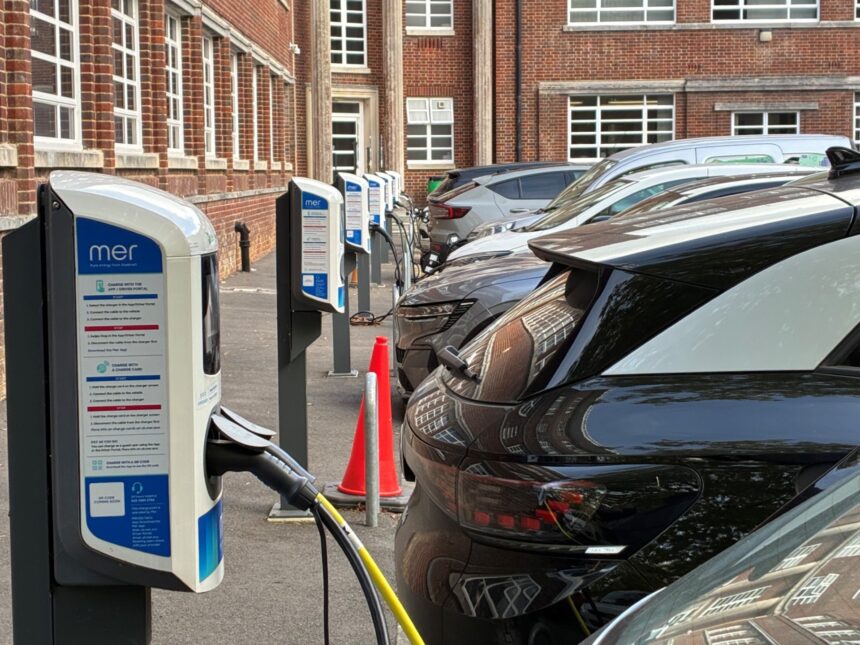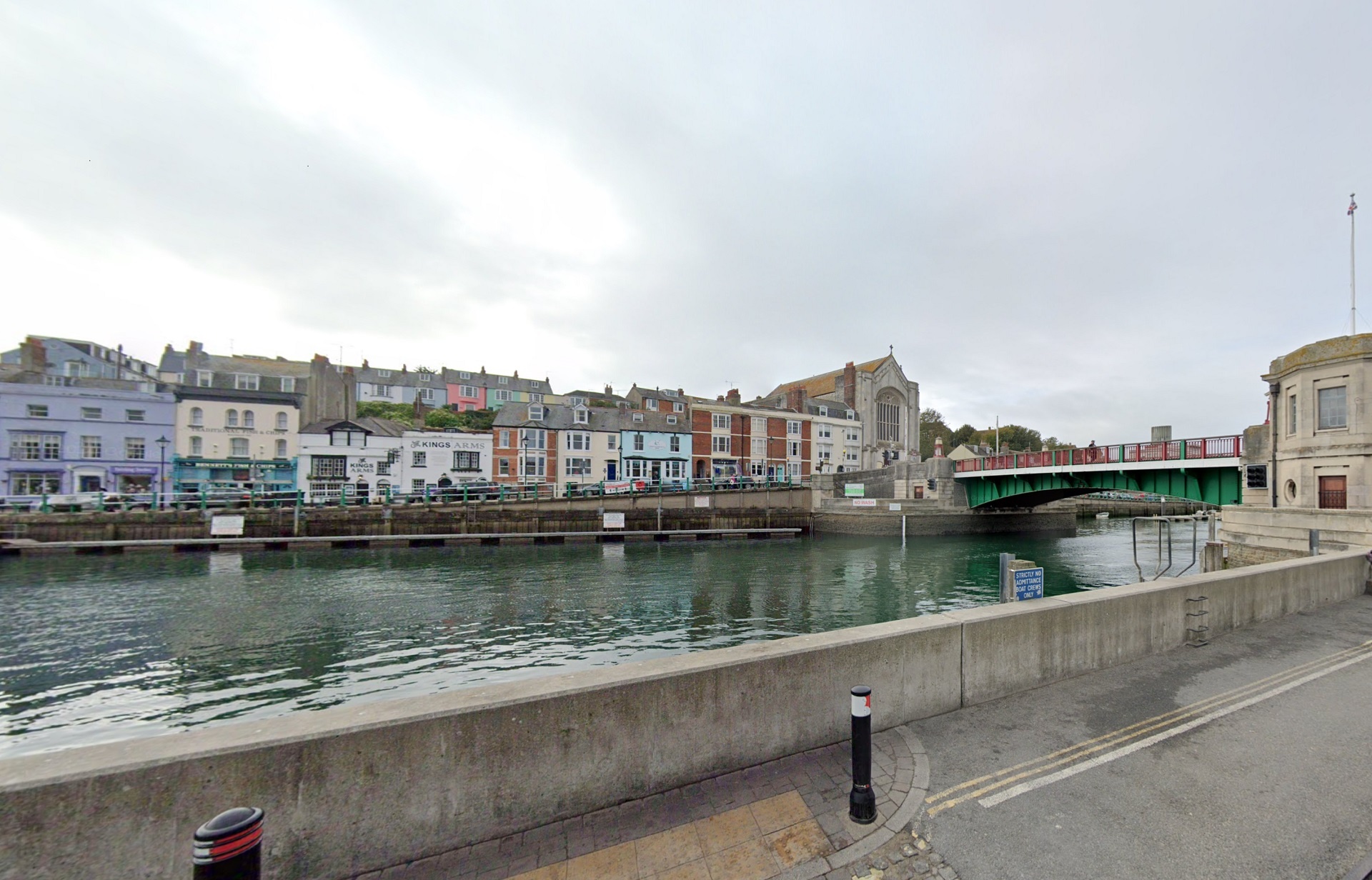by Trevor Bevins, Local Democracy Reporting Service.
Motorists using electric vehicle charging points in Dorset Council-owned car parks are being ripped off, according to councillors.
Typical fees are ten times the amount an electric vehicle user would pay at home – with Dorset Council taking a slice of the profits.
The charges at the council-backed machines are said to be higher than anywhere else with questions being asked about the loss of other parking income by giving the spaces over to EV charging.
“Is it a fair premium we are charging or are people being ripped off?” said Cllr Andrew Parry, the Tory opposition group leader on the Lib Dem controlled council.
He has asked for the 100-plus machines in council car parks to prominently display the price being charging – in the same way that conventional pumps do.
Dorset Council has so far made £36,000 from a 15-year deal it did in 2021 with a commercial EV charging company, Mer, the company using council car parking spaces for the machines, giving the council a proportion of the profits.
Conservative group leader on the authority, Cllr Andrew Parry, said he was shocked to have to pay more than £30 for around 100-miles EV charge when he used one of the machines.
He said if the council wanted to spread the use of electric cars it was going the wrong way about it – at the price he paid it would have been cheaper to travel using a petrol or diesel vehicle.
Other councillors have questioned the priority being given by the council to electric cars with claims that most Dorset people will never be able to afford to buy one – and even if they could the difficulties of charging on the streets, especially in the rural areas, remain difficult with Conservation Areas, Listed Buildings and pavements regulations.
Cllr Parry said when he went to council car park the EV spaces were almost always not being used and, he claimed, must have led to a loss of ‘normal’ parking income with three spaces taken up for every two EV charge points.
“There are 40 million vehicles on Britain’s road and we don’t put a petrol pump in every one of our car parks, therefore why should we go down the route of doing such things for electric vehicle charging?
“Are we actually funding something the private sector is now investing in?” he told a council committee.
A survey of Dorchester car parks on Tuesday lunchtime only found two of a dozen chargers being used in Dorset Council car parks, although the majority of machines in the staff car park at County Hall were being used.
Former highways portfolio holder, Cllr Ray Bryan, said he didn’t believe the public backed giving over spaces in council-owned car parks to EV charging and that electric cars were not catching on.
He also said the transfer of the machines to Dorset Council at the end of the 15-year-contract period was likely to be “useless” as they would be out of date by then.
He told the committee he would probably continue to drive his diesel car until he dies.
Officers told the meeting that the roll out of EV charging points had slowed because of a combination of planning and legal issues, National Grid capacity, accessibility, and a lack of community support in some areas.
The meeting heard that while some parish and town councils were keen to have EV charging points in their car parks, some had declined the offer.
Cllr Sherry Jespersen (Hillforts & Upper Tarrants) said that the vast majority of Dorset residents on average local salaries would never have a chance of affording an electric vehicle.
“Many live in conservation areas, in listed buildings and are restricted to what they can do. I live in a listed building and wouldn’t be allowed to have an EV charging point… it’s unrealistic to think we will get to anything like 100 per EV by 2030” she said.
“It’s an unrealistic ask and we are in danger of building an ambition and a plan which is simply not possible to achieve unless more people can charge at home and I’m not seeing any discussion on that,” she said.
Despite her worries Dorset Council says it does have plans for more on-street parking points in the coming months.
Weymouth councillor Louie O’Leary said the existing target growth for electric vehicles was almost entirely driven by business use.
“It’s a Micky Mouse target, if we are anywhere near it I’ll eat my tee shirt.
It’s a middle class obsession – we can’t expect people to go into a public car park and charge up if where they live they can’t get a charge point, it’s not realistic.
“If everyone goes electric Weymouth car park spaces will be taken up by EV points… I just don’t think the current proposals will work. I think we are doing far too much on this for far too few people, 5 per cent might be owners, 95% are not.”
Cllr Simon Gibson warned that unless the county did what it could to increase the number of EV charge points, especially in tourist areas, the local economy would ultimately suffer.
Several councillors spoke of a lack of public EV charge points in their areas, with a claim that there were none in the north of the county east of Blandford.
The meeting was told that on a low tariff people charging their car at home, overnight, will be paying 7p per kw, the equivalent of 2.5p per mile, with the average public fast public charger at 51p per kw hour and those in Dorset Council car parks charging 76p per kw hour – higher than the ‘break even’ fee of 43p need to make EV cheaper than petrol or diesel.

County Hall staff EV charging – mainly in use















